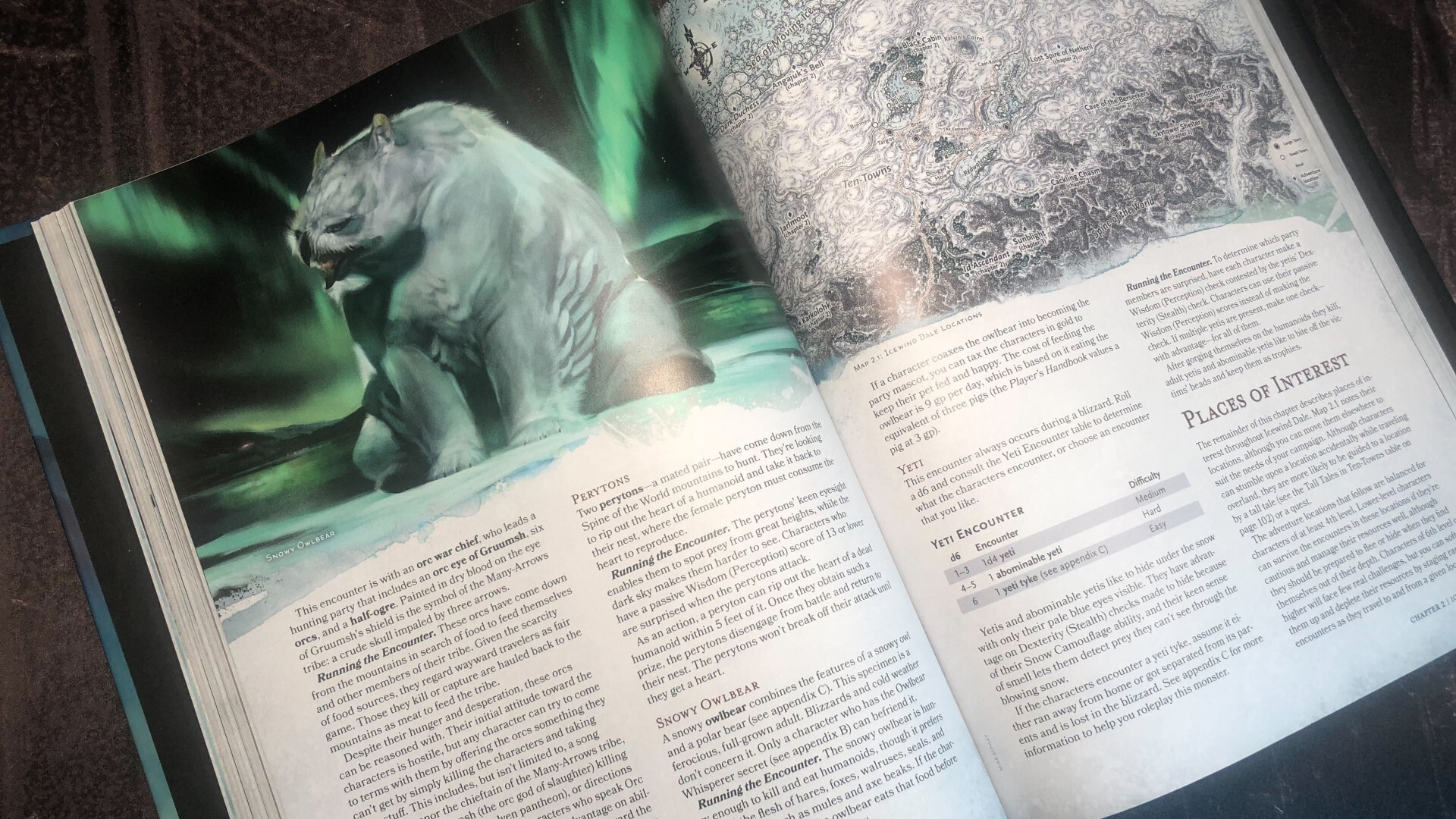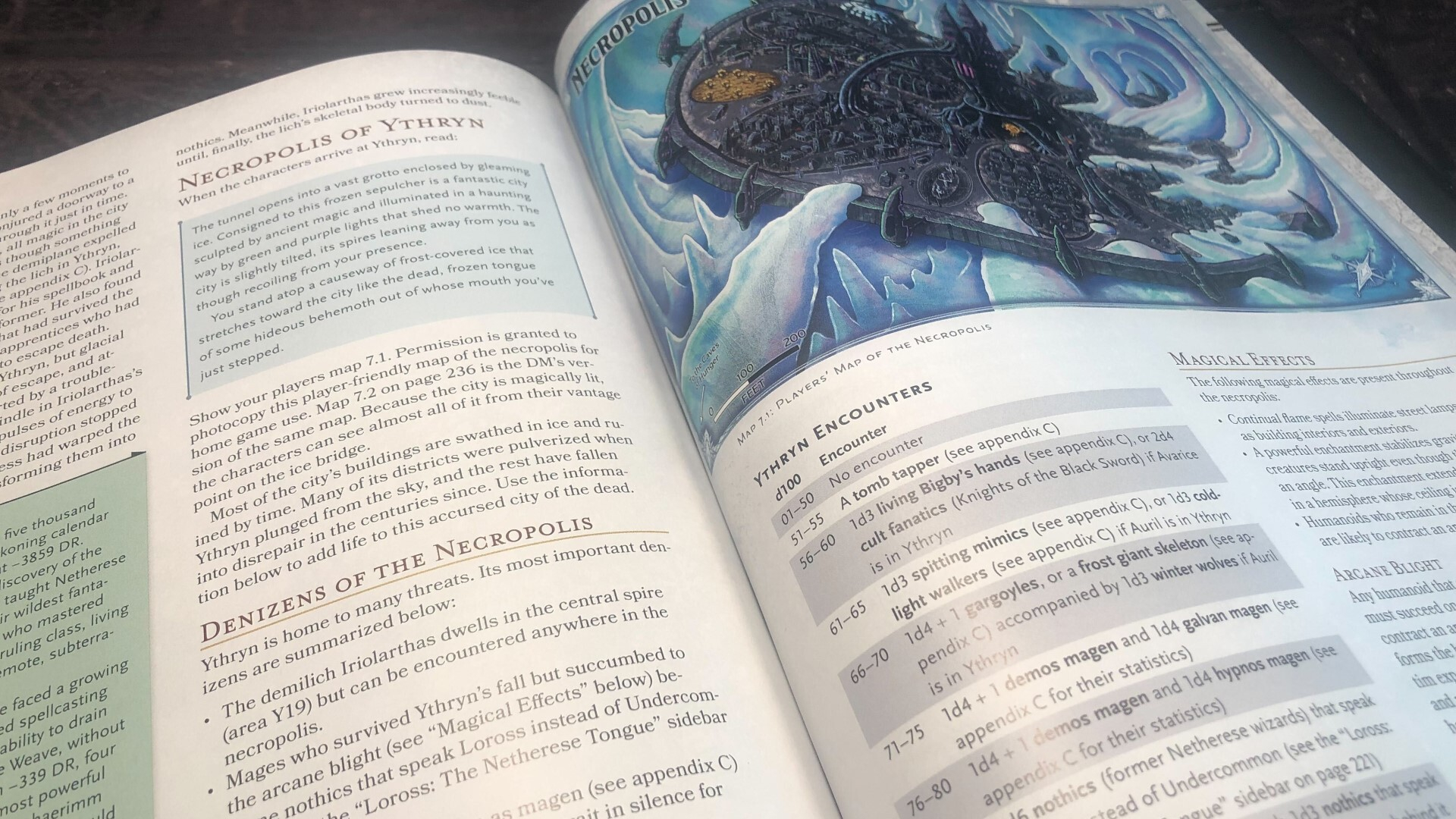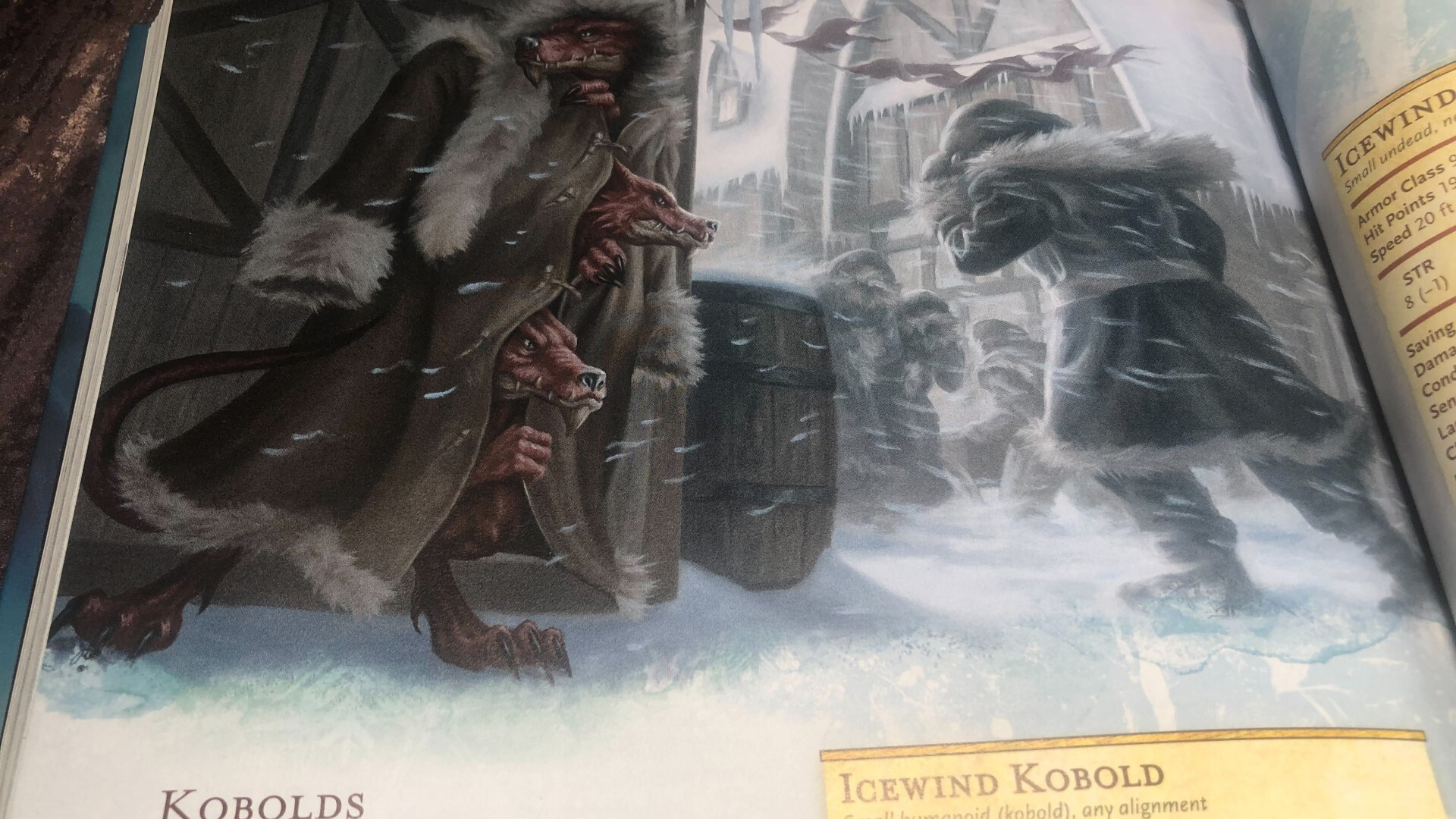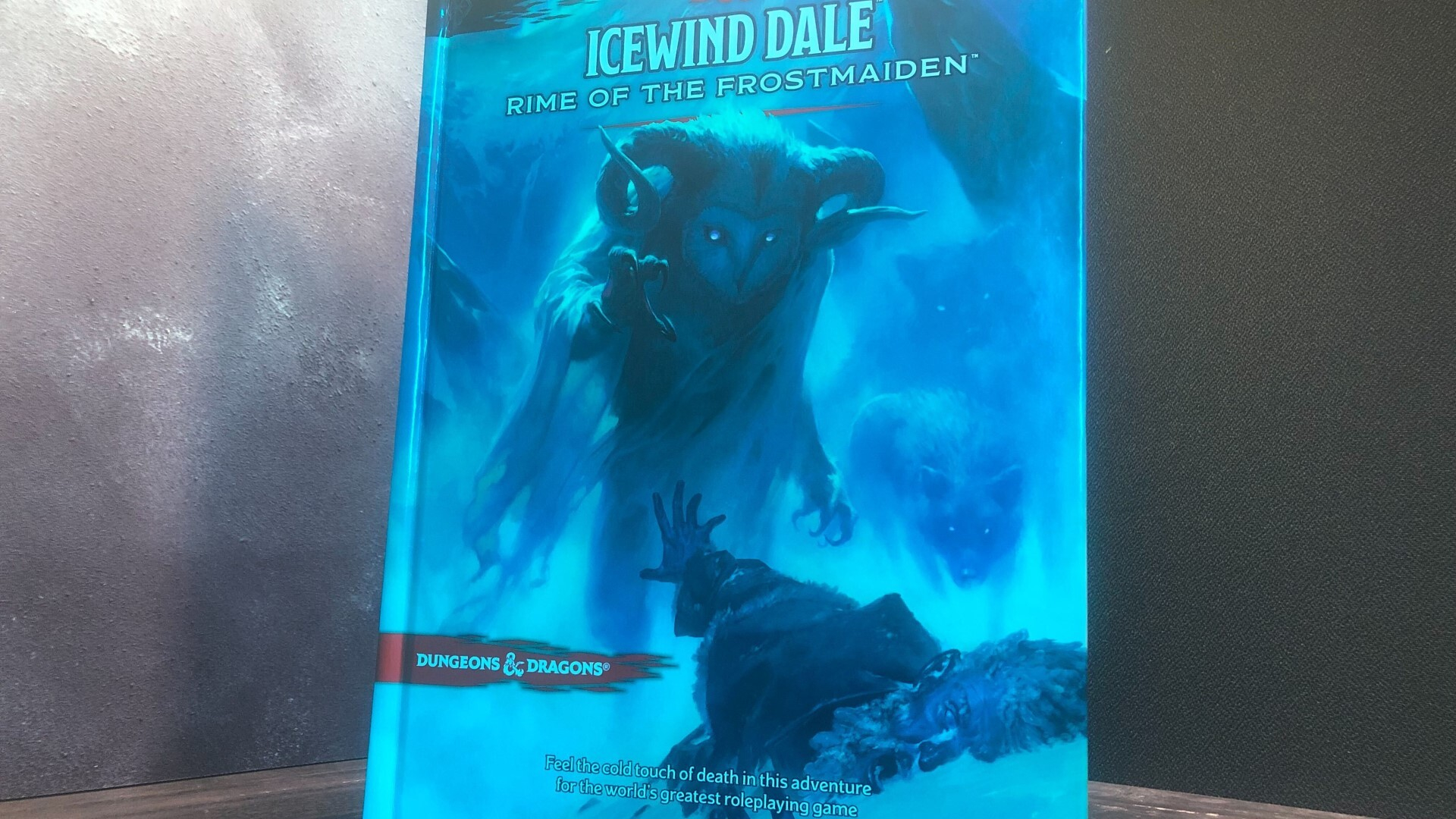GamesRadar+ Verdict
Rime of the Frostmaiden exhibits a new kind of eerier horror beyond the more traditional creepshows exemplified in modules like Curse of Strahd, and rises into something uniquely special because of it. Though a little loose and disconnected at times, the standout moments of Icewind Dale are some of the best moments in all of D&D Fifth Edition, and Auril is an antagonist who, when handled carefully, can silence a group of adventurers with just her name alone.
Pros
- +
A harsh, evocative setting brimming with personality
- +
Sandbox structure allows for easy customization
- +
Every individual adventure feels carefully crafted
- +
Elevates Auril to one of D&D's great antagonists
Cons
- -
Connective tissue and set-up for major events often feels a little lacking
- -
Early challenges might be too brutal, and later challenges too easy
Why you can trust GamesRadar+
Icewind Dale: Rime of the Frostmaiden is a module of serious contrasts. Sometimes it's horrifying and eldritch, with inhuman shapes stalking you through a veil of blizzarding snow. Sometimes it's thunderous and austere, with towering techno-cities and dark fortresses that Skeletor would've been comfortable in. And then you go back to the local bar where a magician's recreation of the Big Mouth Billy Bass singing toy fish that everybody had in the 1990s bellows tunes at you, and three kobolds in a trench coat try to order some mead, presumably under the well-worn pseudonym "Hugh Mann".
Like I said: contrasts.
Icewind Dale: Rime of the Frostmaiden - features
| Price | $49.95 / £34.99 |
| Game system | D&D (Fifth Edition) |
| Ages | 13+ |
| Players | 2+ |
| Lasts | 2 - 4hrs per session |
| Complexity | Medium |
| Play if you enjoy | Tomb of Annihilation, Curse of Strahd, 80s horror movies, earlier stories of Icewind Dale |
Rime of the Frostmaiden is a Dungeons & Dragons Fifth Edition (or '5E') module for heroes of levels 1-11 that takes players back to the land of Icewind Dale - a realm made famous decades back after both a popular video game adaptation and a series of tie-in novels by R. A. Salvatore - for the first time in years.
An arctic wasteland at the best of times, the Dale is now more apocalyptic than ever, as the goddess Auril the Frostmaiden has laid a curse of eternal winter on the entire continent and thrown the balance of nature into chaos. Driven to desperation as the curse enters its second year, the miserable inhabitants are burning through their meagre supplies just to stay alive and resorting to hideous acts of sacrifice to try to mellow the unpleasable Frostmaiden, even as opportunistic monsters from other Dungeons and Dragons books move in to claim the land as their own.
How does it work?

- Standalone story using current edition of D&D
- It's a sandbox playground
- Horror-themed adventures
If you hadn't guessed already, Icewind Dale: Rime of the Frostmaiden is a campaign where horror and isolation are both highly emphasised: characters go up against twisted abominations, get lost in the howling tundra, and are often made to feel weak against superior foes, especially early on (the whole thing will probably pair nicely with both the optional rules for sanity and lingering injuries, if you're so inclined).
The creators cite movies like The Thing and Alien as inspirations, and without getting into detail… yeah, you can definitely see those influences in certain sequences. The Dale isn't a sparkling wonderland, it's a wind-blasted hellscape in which only the strongest or most cunning can survive.
Icewind Dale: Rime of the Frostmaiden - gameplay

- Quests are truly excellent...
- ... but there's little to connect those storylines
- Villain ranks as one of the game's best
I called Rime of the Frostmaiden a module of contrasts, but that's not a criticism. While the tone does waver around at times, it generally pulls together into something pretty coherent - and often enthralling.
Nonetheless, keep in mind that this is more of a sandbox than a singular adventure. The first third of the game is spent doing odd jobs for the beleaguered townsfolk, then when the DM feels they've done enough door-to-door mercenary work, somebody wanders over and simply tells the players that an army of moody grayscale dwarves are building a doomsday weapon. After that's dealt with and never brought up again, the players then get to go find a lost city that nobody's mentioned before now, but is suddenly the most important thing in the world.
Once you're comfortably in those adventures, it's some of the best D&D content you'll find right now
You might have noticed that if Icewind Dale has a major flaw, it's the connective tissue between these individual elements. The module isn't especially good at setting up the big adventures or certain key pieces of information; instead it just throws them at you, and it'll require some extra work on behalf of the DM to integrate them more organically into the narrative. Don't get me wrong, the adventures are great once you're actually in them, but they come out of nowhere with little build-up or ceremony, and a few plot points hang a little too loosely for their own good.
But once you're comfortably in those adventures, it's some of the best D&D content you'll find right now. Even the early quests for the townsfolk, which would normally run the risk of being throwaway, generic time-killers, are all full of flavour and usually have some great hook woven in (the "Black Cabin" and "Id Ascendant" are particular standouts). In general, I'd say the game manages to walk a fine line where any DMs would be able to easily dial the horror elements up or down to suit their players, just by making a few substitutions.
I also want to give some love to Auril herself, whose design and demeanour makes her one of the best D&D villains in recent years. The Frostmaiden comes across as arch and alien, completely disinterested in mortal affairs, and feels less traditionally evil than just… incomprehensibly amoral, like how a blizzard doesn't really care either way if there's anybody getting frostbite from it. It's a great reflection of the campaign's theme of isolation; the game's primary antagonist barely registers that you're there, and there's nothing personal or spiteful in what she does to you. Well, at least until you throw a fireball at the back of her head.
Should you buy Icewind Dale: Rime of the Frostmaiden?

Yes! Icewind Dale is really good, and its failings are few and far between. It's a bulky book that serves as a great sandbox setting, full of memorable threats at both the micro and macro levels, and features lots of content that can be relocated into other settings and adventures without difficulty. There's even a neat feature to encourage roleplay, where every character can draw a "secret" that they're keeping from the other players and the world at large.
Where Rime of the Frostmaiden occasionally stumbles, as mentioned, is when trying to broach the gaps between its disparate pieces, as well as when 5e's general "swords and superheroes" vibe rubs up against the horror element. Weak as you are at the start, it's hard to feel too scared in later levels when you can change reality with a finger snap and tank cannonballs to the nose.
Still, Icewind Dale is a great module, and while it might be a little too hard on new players, those who are willing to test themselves in the frozen wastelands will find a land bristling with hostility and potential in equal measure. It's damned cool - in every sense of the phrase.
Buy it if...
You want a horror-themed adventure
Those invested in horror, roleplay, and slower pacing over dynamic, constant action will be well suited to this storyline.
You like to tweak adventures
Hunting down an elastic sandbox map you can tinker with easily? This is the book for you.
Don't buy it if...
You're looking for a power-fantasy
Anyone wanting to give their players a pure power-fantasy experience will be disappointed by Rime of the Frostmaiden; it's more of a slow-burn horror.
You want a tight narrative
More interested in a singular narrative than a piecemeal adventuring career? Better to look elsewhere, I'm afraid. This is the definition of a sandbox.
How we tested Icewind Dale: Rime of the Frostmaiden
I DMd a large percentage of Icewind Dale with a group of five players (thanks, Icebreakers) at time of writing, making a few additions to the module to fit the new player backstories. I also, of course, read the rest of the module in detail, while comparing and discussing with others who have played through the entire thing, both as players and DMs.
For more recommendations, be sure to check out the best tabletop RPGs or the best board games. It's also worth checking out our interview with the Icewind Dale team where they told us how to write a D&D horror adventure.
More info
| Genre | RPG |

Joel Franey is a writer, journalist, podcaster and raconteur with a Masters from Sussex University, none of which has actually equipped him for anything in real life. As a result he chooses to spend most of his time playing video games, reading old books and ingesting chemically-risky levels of caffeine. He is a firm believer that the vast majority of games would be improved by adding a grappling hook, and if they already have one, they should probably add another just to be safe. You can find old work of his at USgamer, Gfinity, Eurogamer and more besides.



